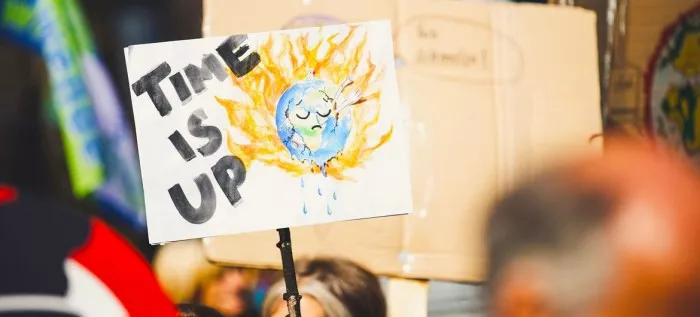According to the latest climate report released by the World Meteorological Organization (WMO) on the evening of the 9th local time, the probability that the global annual average temperature will rise by 1.5 degrees Celsius from the pre industrial level in the next five years is 50%, and this probability will increase over time. Reuters said it is worth noting that the UN Paris Agreement on climate change signed in 2016 pointed out that the international community should control the rise of the global average temperature within 2 degrees Celsius compared with the pre industrial level within this century, and strive to control the rise within 1.5 degrees Celsius.
In other words, the World Meteorological Organization believes that there is no need to wait until the end of this century. Before 2026, mankind may face the limit of 1.5 degrees Celsius higher than before the era of industrialization.

Although it is currently predicted that there is only a 50% probability of global temperature rise exceeding 1.5 degrees Celsius, experts believe that this prediction probability has been increasing in recent years. The prediction is only 20% in 2020, revised to 40% last year and 50% this year. The global warming of 1.5 degrees Celsius will have a terrible impact. According to the United Nations Intergovernmental Panel on climate change, global warming of 1.5 degrees Celsius will cause great damage to natural and human systems. For example, climate warming will lead to the rise of sea level and the increase of extreme weather conditions, which seriously threaten human and earth life.
"This study shows that we are significantly close to reaching the lower limit set by the Paris Agreement. The figure of 1.5 degrees Celsius is not a random statistic, but rather an indicator that climate impacts will cause greater and greater harm to mankind and the whole earth," said Petri Talas, Secretary General of the World Meteorological Organization
"As long as we continue to emit greenhouse gases, the global temperature will continue to rise. At the same time, the oceans will continue to warm and acidify, sea ice and glaciers will continue to melt, sea levels will continue to rise, and extreme weather will be more frequent. The temperature in the Arctic is rising beyond the normal proportion, and changes in the Arctic will affect each of us," Talas said
At present, the global average temperature has risen by about 1.1 degrees Celsius compared with that before industrialization. Reuters said that in terms of current human activities and climate policy, the global temperature could rise by 3.2 degrees Celsius by the end of this century compared with that before the industrial era. "Losses and damages related to or exacerbated by climate change have occurred, some of which are irreversible in the foreseeable future," said dilly, director of the Department of climate prediction and adaptation of the World Meteorological Organization
The British Meteorological Center, which cooperates with the World Meteorological Organization to predict, said that 2016 and 2020 are the hottest years in the world, and the research of the center believes that there will be years when the global temperature will break the new high from 2022 to 2026. The probability that the average global temperature from 2022 to 2026 is higher than that in the past five years is as high as 93%. "This is very worrying. It shows that we continue to warm the earth. We are approaching the first threshold set in the Paris Agreement. We should reduce the use of fossil fuels as much as possible," said Hermanson, a researcher at the British Meteorological Center